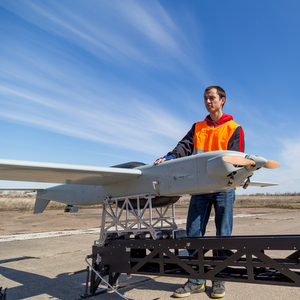Young specialists of Samara University collaborate with the All-Russia People's Front (ARPF) in the sphere of ecological monitoring. One of the fresh results of their interaction became the disclosure of an unauthorized garbage storing place on XXII Partsiezda St. in Samara. The centre of the calamity was found by an unmanned aircraft developed at Samara University.
“The flight lasted only 20 minutes. We raised the unmanned aircraft, found the object, fixed it with the help of aerosurveying, measured the volume of dump, the processed mass of information was loaded into the interactive map. And all these things were done in one day. Ecological monitoring is one of directions which society needs badly”, - activist of ARPF, member of unmanned aircraft developers team, postgraduate student of Samara National Research University Anton Nazarov mentioned.
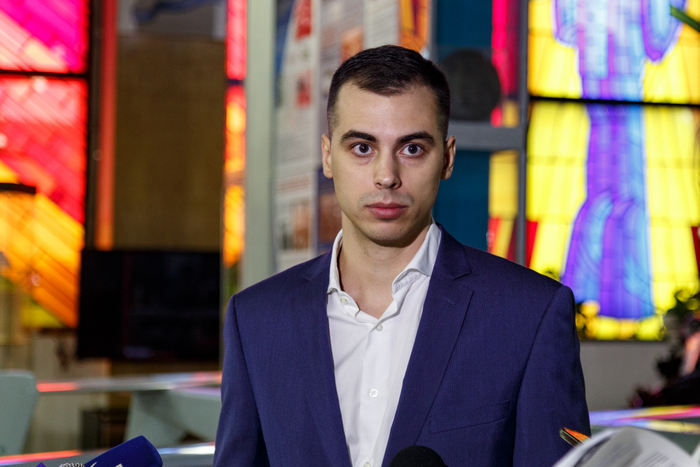
“Environment pollution took the scale of a catastrophe long ago. It is obvious that without attraction of the most modern technologies it is impossible to cope with it. “Having understood the globality of the task we in cooperation with activists, state structures, representatives of authority are searching for the ways to solve the problem. Roscosmos began work to monitor the earth surface from space. Samara University is participating in it”, - Rector Evgeniy Shakhmatov told. “The University with RSC “Progress” orbited a satellite “AIST-2D”, this project gives good results on probing of the earth surface, but a more detailed examination from smaller heights is required. For this we are going to create an echelon system of distant Earth probing. An essential part of this system is unmanned aircraft which can be used for search and finding of dumps and other necessities”.
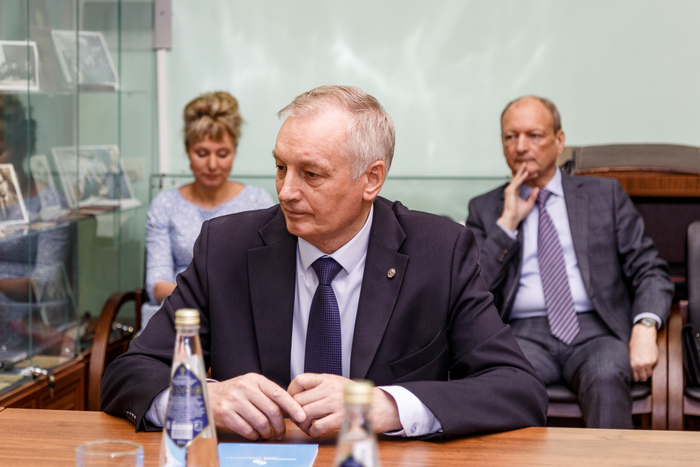
At the meeting (it took place on 30 May at Samara University) with coordinator of ARPF project, deputy of the Russian Federation State Duma Vladimir Gutenyov young scientists of the university told about the ways in which unmanned aircraft can contribute to ecological monitoring in the framework of the ARPF project “Thorough cleaning/interactive map of dumps” realization. The idea of the project is to find out numerous dumps on the territory of our country for their further elimination.
Roughly estimated there are 20 000 unauthorised dumps in Russia. In three months of the project work more than 7600 points have already appeared on the interactive map created by ARPF, 260 of them are the grounds working on “grey schemes”. As a result of this monitoring 730 unauthorised dumps were eliminated, trees or lawns are already planted on their places. Still the scale of calamity is much greater.
“Due to the work of regional headquarters of ARPF Samara Oblast is among the leaders of the project “Thorough cleaning”. This does not mean that we have more garbage, but that the citizens in our province have active life positions. This means a natural desire to live in a clean house, drink good water, this means not only care about future generations, but about ourselves and our relatives as well” , - coordinator of the ARPF project Vladimir Gutenyov told the students, postgraduate students and young scientists who were present. “In Samara Oblast 240 places of unauthorised garbage storage were found, 10% of them are already eliminated. In the walls of this outstanding university it would have been wrong to silence technical opportunities that give modern technologies. In particular we often used quadcopters when fought with “black” woodcutters – the people who cut woods illegally. I will be grateful to those who will add to the project their knowledge, intellect and desire to make our small motherland and our great country cleaner”.
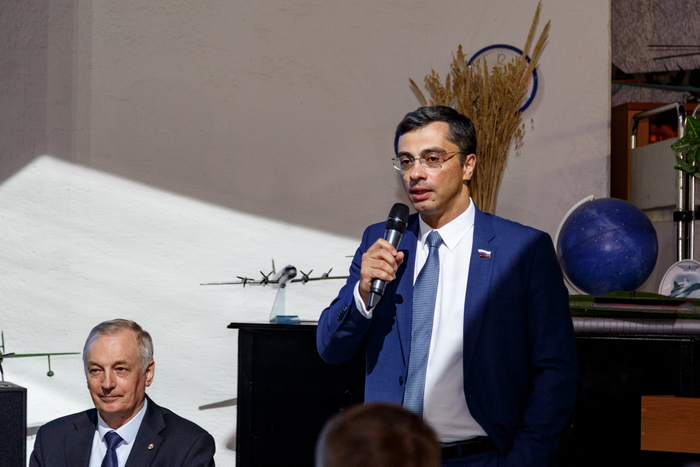
At the meeting the themes of aircraft use for scientific and research as well as applied purposes were discussed, in particular the use of unmanned aircraft for monitoring ecological violations in Samara Oblast.
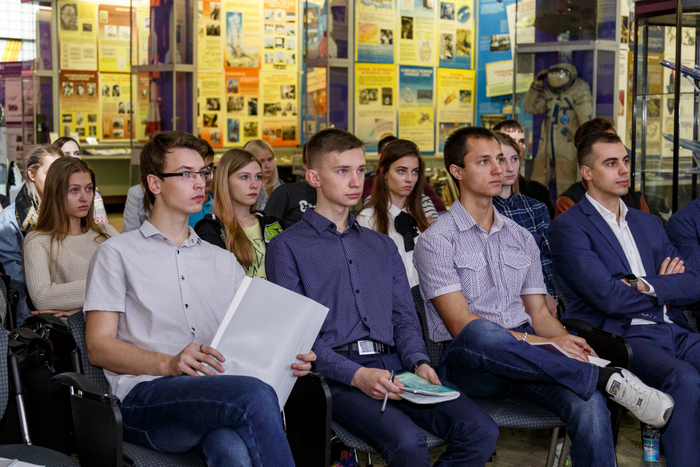
The audience was introduced to two unmanned aircraft developed in the Centre of Unmanned Systems of Samara University. Both unmanned aircraft – “Bumerang” and “Foton” – are completely automated. The principle of work is the following: a route is given to an unmanned aircraft as well as a task that should be fulfilled at this moment or in this geographical spot, then after the launch the operator and technician control its flight, after the task completion on the order of the operator the aircraft lands in a necessary spot with the help of a parachute.
Mobile complex of airborne observation “Bumerang” created a bit more than a year ago is used for aerosurveying and distant earth probing, the length of its flight is 1 hour. It has advantages in the control system, even if navigation system fails, it returns back. GPS, GLONASS are used for navigation.
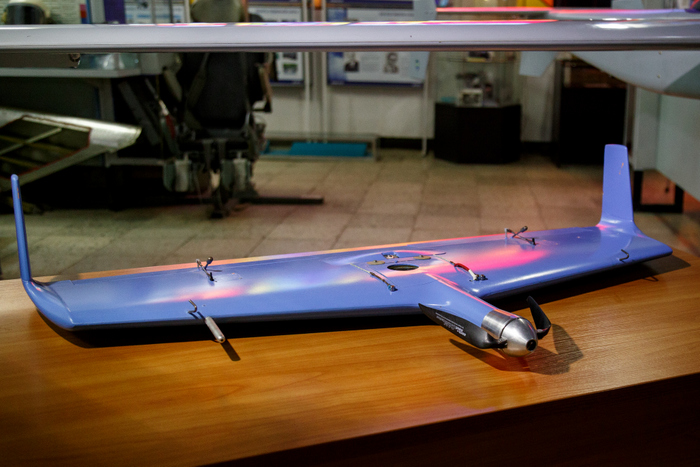
Unmanned aviation complex “Foton” is for solving scientific and applied tasks, it produces video monitoring in real time at the distant of 5 km from the earth surface, the length of its flight is 16 hours.
Perfection of unmanned aircraft continues. Currently at Samara University research in the sphere of photoelectric transformers, i.e. solar batteries, is being conducted. The university scholars found out how many solar batteries covering the area of a wing are necessary to raise an unmanned aircraft on 20 km and fulfill the tasks of retranslation and distant earth probing.
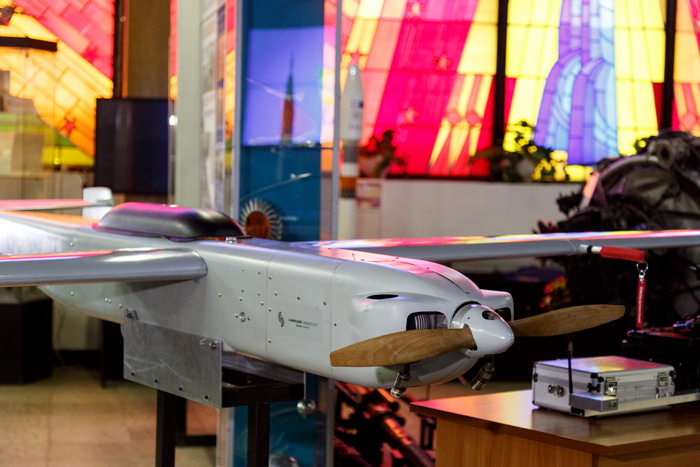
“At one of the meetings with the students at Samara University the spacemen shared one of their brightest impressions: “When you stand on earth, it seems that you have a solid firmness underfoot, but having seen our planet from the orbit you are involuntary impressed by its fragility and vulnerability. Only after this one begins to understand how much we are responsible for the preservation of Earth for the future generations”, - Evgeniy Shakhmatov told about the greatness of tasks in front of the society.
According to Anton Nazarov the bottom line of the meeting was the activists of ARPF’s plan to prepare a suggestion on improvement of the Federal legislature in the sphere of unmanned aircraft use.
For reference
Unmanned technology is being developed in Russia and the world, but specialists of the Centre of Unmanned Systems at Samara University thrive not only to follow the trends, but to be ahead of them as well. The stress in the developments of Samara University scholars is on navigation, intellectual control systems, radio systems and software, in these directions the university is intended to be the best in Russia. Unmanned complexes can not only find out the dumps, but are able to monitor for oil industry, in particular objects in squares and line ones (pipes), follow the waste disposal in the water area of the river Volga, help to solve tasks in the sphere of mapping and land surveying.
Photo: Natalia Orlova


 At the meeting the themes of aircraft use for scientific and research as well as applied purposes were discussed, in particular the use of unmanned aircraft for monitoring ecological violations in Samara Oblast.
At the meeting the themes of aircraft use for scientific and research as well as applied purposes were discussed, in particular the use of unmanned aircraft for monitoring ecological violations in Samara Oblast. 


